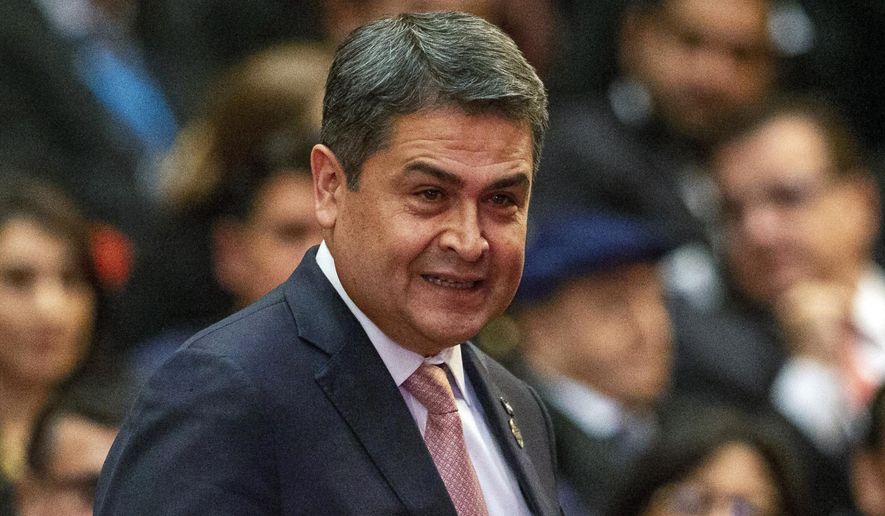MEXICO CITY (AP) - Honduran President Juan Orlando Hernández denied once again Monday accusations from United States prosecutors that he protected drug traffickers in exchange for bribes.
This time, documents filed late Friday by federal prosecutors in New York said that Hernández, identified in documents as CC-4 or co-conspirator 4, was under investigation. While U.S. prosecutors have detailed incidents in which Hernández allegedly accepted bribes, including from infamous Mexican kingpin Joaquin “El Chapo” Guzman, they had not previously referred specifically to an investigation against the sitting president.
The reference to a U.S. investigation of Hernández was made in a filing by U.S. prosecutors in the drug trafficking case of Geovanny Fuentes Ramirez. Fuentes Ramirez is accused of conspiring to smuggle cocaine into the United States and of killing several people to protect his business.
Late Monday, Honduras’ presidential Twitter account sent messages in Spanish and English denying Hernández had any such role. He has not been charged.
“The claim that Pres. Hernandez supposedly accepted drug money from a Geovanny Daniel Fuentes Ramirez, or gave protection or coordination to drug traffickers is 100% false, and appears to be based on lies of confessed criminals who seek revenge and to reduce their sentences,” said one message.
“This and other opportunistic allegations are contested by the essential fact that during the Hernández Administration, coca trafficking through Honduras fell from 87% to 4% from 2013 to 2019, as recognized by the publications of the Department of State (INCRS) of those years,” the second message said.
Honduras has been repeatedly praised by U.S. authorities for its cooperation in combating drug trafficking.
In the U.S. prosecutors’ court filing, they said the Honduran government has not been helpful in their investigations, including that of Hernández’s brother Juan Antonio “Tony” Hernández, who was convicted in New York of a drug conspiracy in 2019. For the last several years, prosecutors in the U.S. Southern District of New York have been building cases against drug traffickers up to the Honduran security forces and politicians who protected them.
“This criminal investigation has established that corruption is endemic in Honduras, and given the target set at issue, assistance from the Honduran government in support of these ongoing prosecutions has hardly been forthcoming,” the prosecutors wrote. “For example, the Honduran government has provided only limited records in response to a treaty request for evidence relating to Tony Hernandez and not honored extradition requests relating to other charged co-conspirators — and potential witnesses against the defendant and CC-4.”
At another point, the U.S. prosecutors contested arguments made by Fuentes Ramirez’s lawyers. “The defendant’s complaints about the government’s investigation ignore the realities of developing evidence of drug trafficking and acts of violence in Honduras in connection with an investigation targeting, among others, high-ranking officials such as CC-4,” the document said.
Last month, prosecutors in the same case filed motions saying Honduras’ president took bribes from drug traffickers and had the country’s armed forces protect a cocaine laboratory and shipments to the United States. The documents quote Hernández as saying he wanted to “‘shove the drugs right up the noses of the gringos’ by flooding the United States with cocaine.”
Prosecutors have previously alleged that Hernández fueled his political aspirations with money from drug traffickers. In exchange, Honduran security forces allowed them to move cocaine through the country, a major transshipment point for South American cocaine en route to the United States, the prosecutor say.
Hernandez, who had been president of congress before being elected president in 2013, was reelected in 2017 to a term that ends in January 2022.
___
Associated Press writer Claudia Torrens in New York contributed to this report.




Please read our comment policy before commenting.